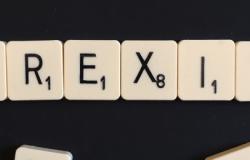The Brexit Dead End

David Held provides three reasons for Britain to remain in Europe’s greatest ever political achievement.
Brexit is a dead end for the UK. It’s a cul-de-sac, a distraction and damaging in fundamental ways. Brexit will create a much more insecure world and a more isolated and weaker UK. Brexit will set the UK economy back at least a decade. The shock will be in the order of the recent and continuing global financial crisis.
There are three reasons why this is true. The first concerns security and the prospects of global peace as well as peace in Europe itself. We like to repress the fact that Europe has been the most bloodthirsty, aggressive and violent continent in human history. From the late 16th Century, Europe exploded onto the world and in the centuries that followed it created the biggest empires ever known. Britain was at the centre of the largest of these with colonies reaching across the world. When these empires came under pressure from the late 19th century and began slowly to collapse, Europe turned inward and entered a ‘black hole’ of violence in the first half of the 20th century. Fascism across large parts of Europe, two world wars and the Holocaust are among the markers of the bloody catastrophe of European history. The Holocaust was the grotesque crown on this war-torn body, but the body itself was riddled with signs of the most heinous violence and degradation.
Was this the Europe of the Renaissance? Was this the Europe of the Enlightenment? Was this the Europe of industrial modernisation? Was this the Europe of the modern state? Indeed, in part. Europe has always had many faces as it strove throughout the 18th and 19th century to create rights and benefits for its citizens while denying these to all outsiders; outsiders within the developing European nation states, and those in the colonies. Yet, all was not lost. Europe after 1945, passed from Hobbes to Kant, and set off along the road to a new Kantian pacific union in which to this day the idea, let alone the reality, of violence between European states is almost inconceivable. Having stared in the abyss of the first half of the 20th century, political leaders from across the world gathered at the UN conference in San Francisco to try and set down a new world order. In Europe, similar processes began from the late 1940s to create a union of European states bound together by trade, investment and a common law of human rights standards. For all of its ups and downs, and weaknesses in governance, the Union has held, pooling sovereignty and creating a zone of peace. Why would we put all this in jeopardy now? Why would Britain leave the EU at this moment? Why would we turn our back on a peaceful Europe and risk a return to isolation and a more fragmented Europe? The European Union remains a great peace project and this remains its abiding significance.
The European peace project created the conditions in which the European economy could flourish. It is only with relatively stable institutions that the conditions are created for economic growth and prosperity. Under relatively open, liberal, and predictable circumstances individuals and companies can take risks and build investments and economic networks across countries. The growth of intra-EU trade over the last decades has been remarkable, making all EU countries stronger. Of course, there were mistakes in economic governance and in the policies the EU put in place; the introduction of the Euro without appropriate governance allowed EU economic interdependence to accelerate without the benefit of stable fiscal and redistributive policies.
Such mistakes can be corrected with time, but Brexit can’t. Pulling the UK out of the EU would deprive the UK of its biggest trading partner, create a massive disincentive for companies around the world to invest in the UK, lead to financial and commercial exit as banks and companies seek safer economic havens within the larger market of the EU, and provide a massive boost to unemployment. These processes have, in fact, already begun as the risk of Brexit erodes business confidence. It would be reckless to go further in this direction. If there ever were a case for economic Luddism, this would be it.
If the U in the EU stands for a peaceful union, the E stands for economic wellbeing in the largest market in the world. But E stands for something else of equal significance: the environment. Seventy years of break-neck industrialisation in the West, and now in Asia and the South, have led to many serious forms of environmental externalities. The most challenging of all these is itself an existential threat. Climate change threatens human life as we know it. There can be no sustainable peace or sustainable economy without addressing the costs of climate change, and creating polices that address the challenges of mitigation and adaption. It is a very tough rough road from a high carbon to a low carbon economy but it is a road that can only be travelled by increasing border cooperation between states. The EU has led on these issues over the last 15 years. To weaken the EU now, in the face of an existential threat, would be calamitous for this and future generations. Brexit could weaken the EU’s role in addressing climate change by creating new schisms; and it would certainly marginalise the UK in future climate discussions.
Why vote remain? These are the three crucial reasons: EEU – Economy, Environment and Union. The alternative is a nostalgic Britain hankering after a lost empire and lost sovereignty, increasingly stumbling across a darker and more uncertain landscape of world economics and politics.
It remains one of Europe’s greatest achievements to have created a strong union of states where there was once devastation and war. The attempt to create common political structures rooted in human rights and rule of law remains one of the most inspiring political projects in a global world fraught by the contradictory pressures of globalisation and nationalism. In an era where global bads pervade – global financial instability, global economic imbalances, the risk of pandemics and epidemics, climate change and so on – coming together in political blocs to deal with common challenges can only be the right way ahead. This way is built on solving common problems, enjoying common governance in the face of common threats and on the commitment to principles and procedures that alone can create peace, unity and freedom in a diverse world; that is, the principles of democracy, social justice and human rights. For all of its weaknesses today and severe challenges this remains a European Union worth having.
David Held is Master of University College and Professor of Politics and International Relations at Durham University. He is also the General Editor of Global Policy and co-founder of Polity Press.
Photo credit: jeffdjevdet via DIYlovin / CC BY


